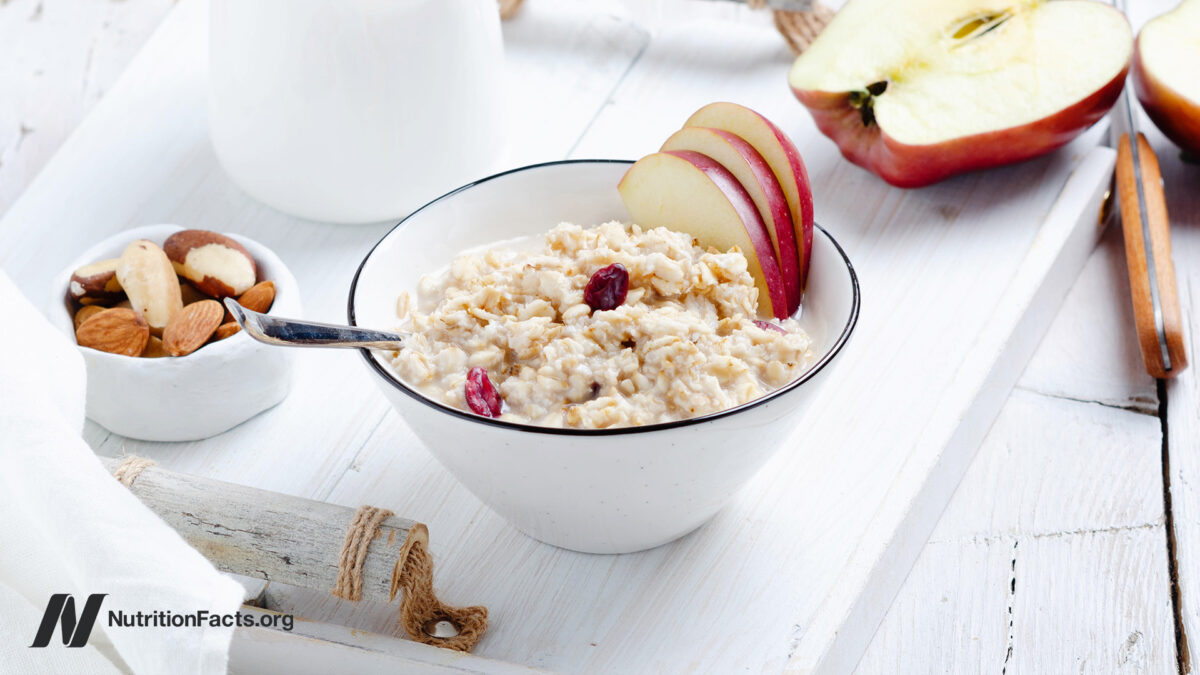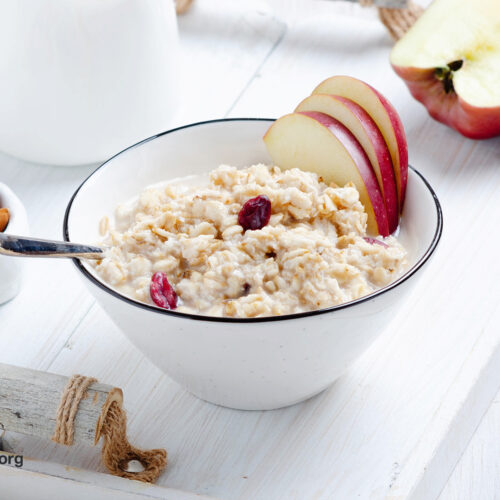The same meal eaten at the wrong time of day can double blood sugar.
We’ve known for more than half a century that our glucose tolerance—the ability of our body to keep our blood sugars under control—declines as the day goes on. As you can see in the graph below and at 0:25 in my video How Circadian Rhythms Affect Blood Sugar Levels, if you hook yourself up to an IV and drip sugar water into your vein at a steady pace throughout the day, your blood sugars will start to go up at about 8:00 pm, even though you haven’t eaten anything and the infusion rate didn’t change.
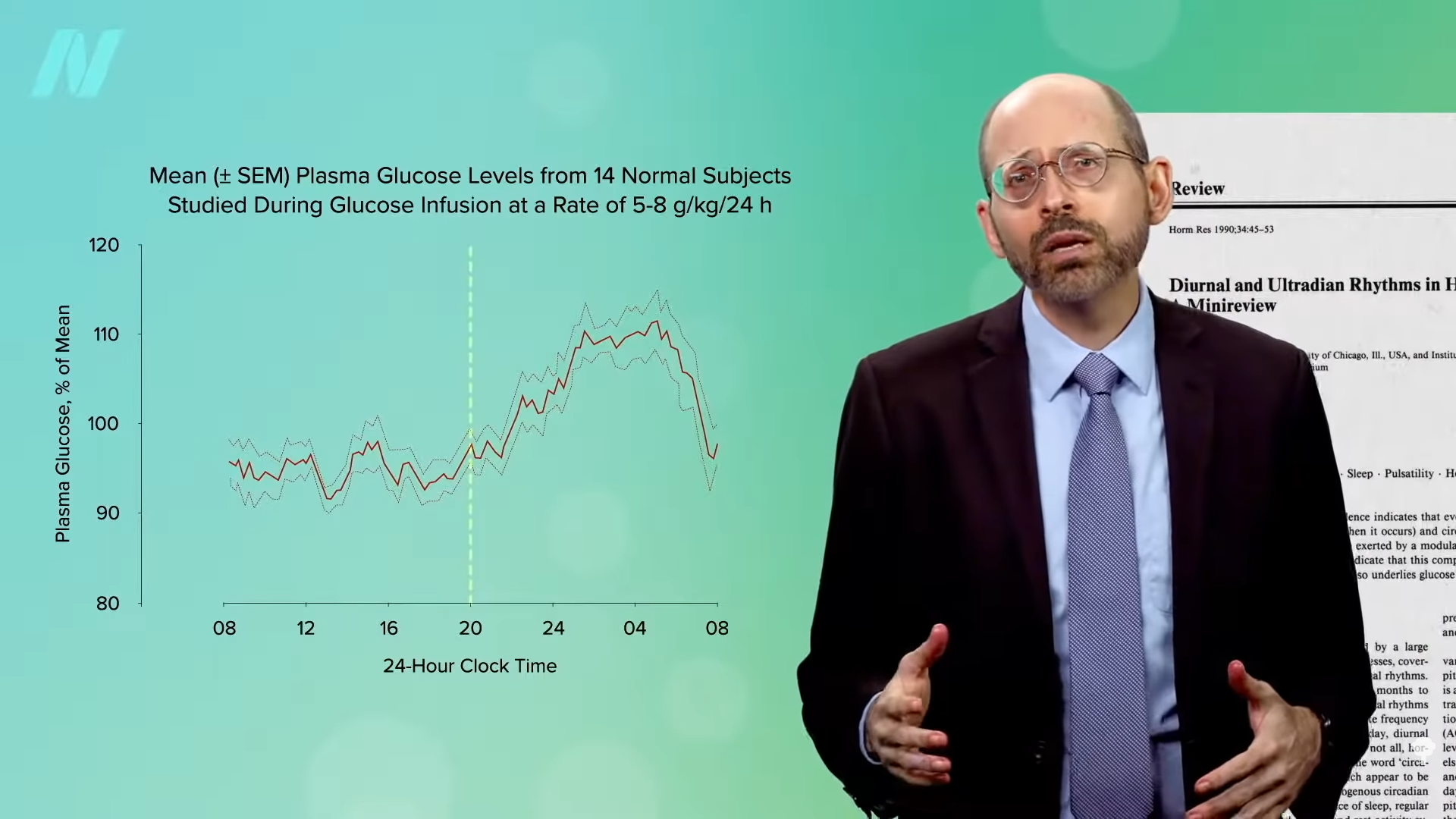
The same amount of sugar is going into your system every minute, but your ability to handle it deteriorates in the evening before bouncing right back in the morning. A meal eaten at 8:00 pm can cause twice the blood sugar response as an identical meal eaten at 8:00 am, as shown in the graph below and at 0:51 in my video. It’s as if you ate twice as much. Your body just isn’t expecting you to be eating when it’s dark outside. Our species may have only discovered how to use fire about a quarter million years ago. We just weren’t built for 24-hour diners.
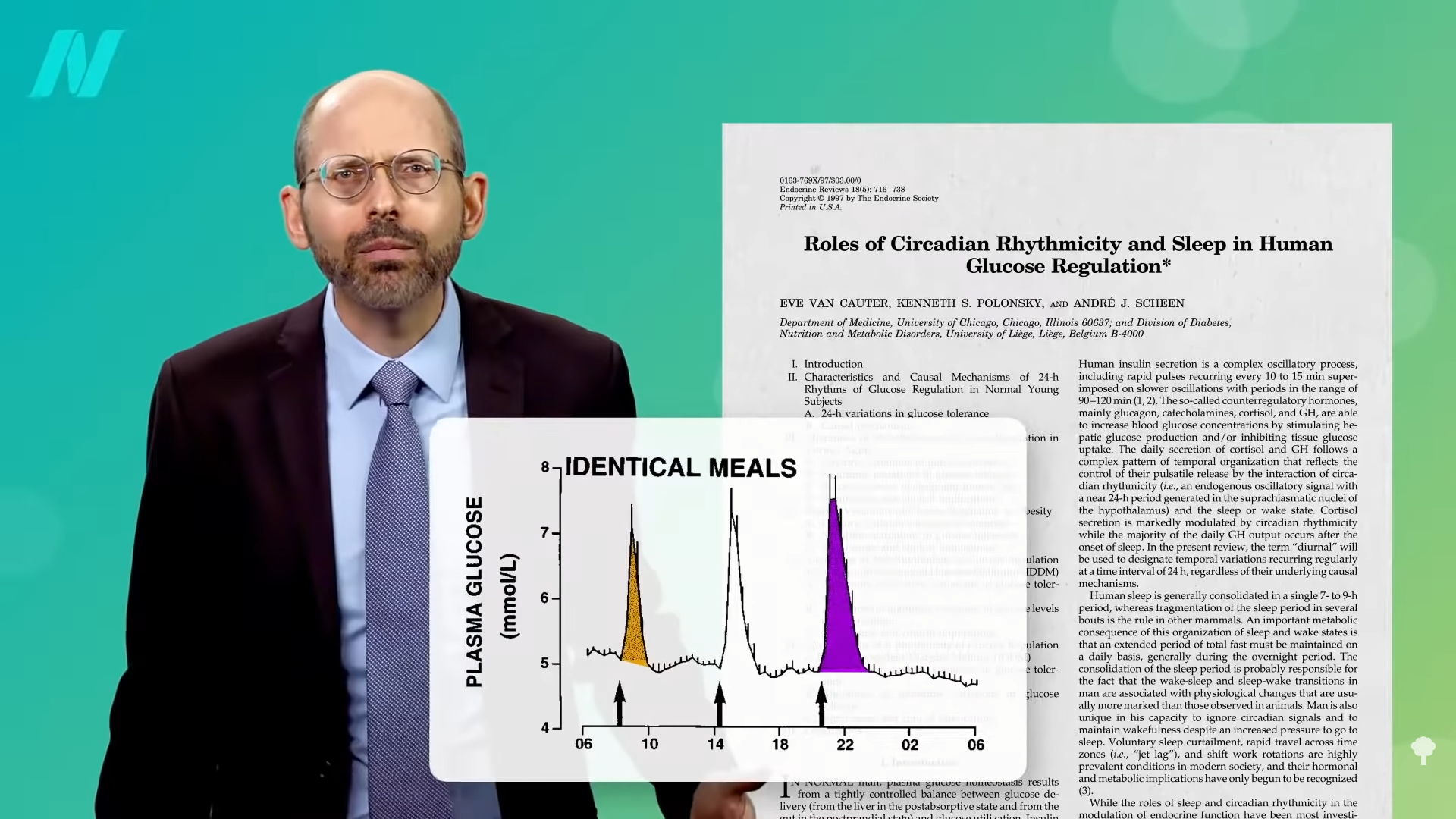
One of the tests for diabetes is called the glucose tolerance test, which sees how fast our body can clear sugar from our bloodstream. You swig down a cup of water with about four and a half tablespoons of regular corn syrup mixed in, then have your blood sugar measured two hours later. By that point, your blood sugar should be under 140 mg/dL. Between 140 and 199 is considered to be a sign of prediabetes, and 200 and up is a sign of full-blown diabetes, as you can see in the graph below and at 1:37 in my video.

The circadian rhythm of glucose tolerance is so powerful that a person can test normal in the morning but as a prediabetic later in the day. Prediabetics who average 163 mg/dL at 7:00 am may test out as frank diabetics at over 200 mg/dL at 7:00 pm, as you can see in the graph below and at 1:53 in my video.
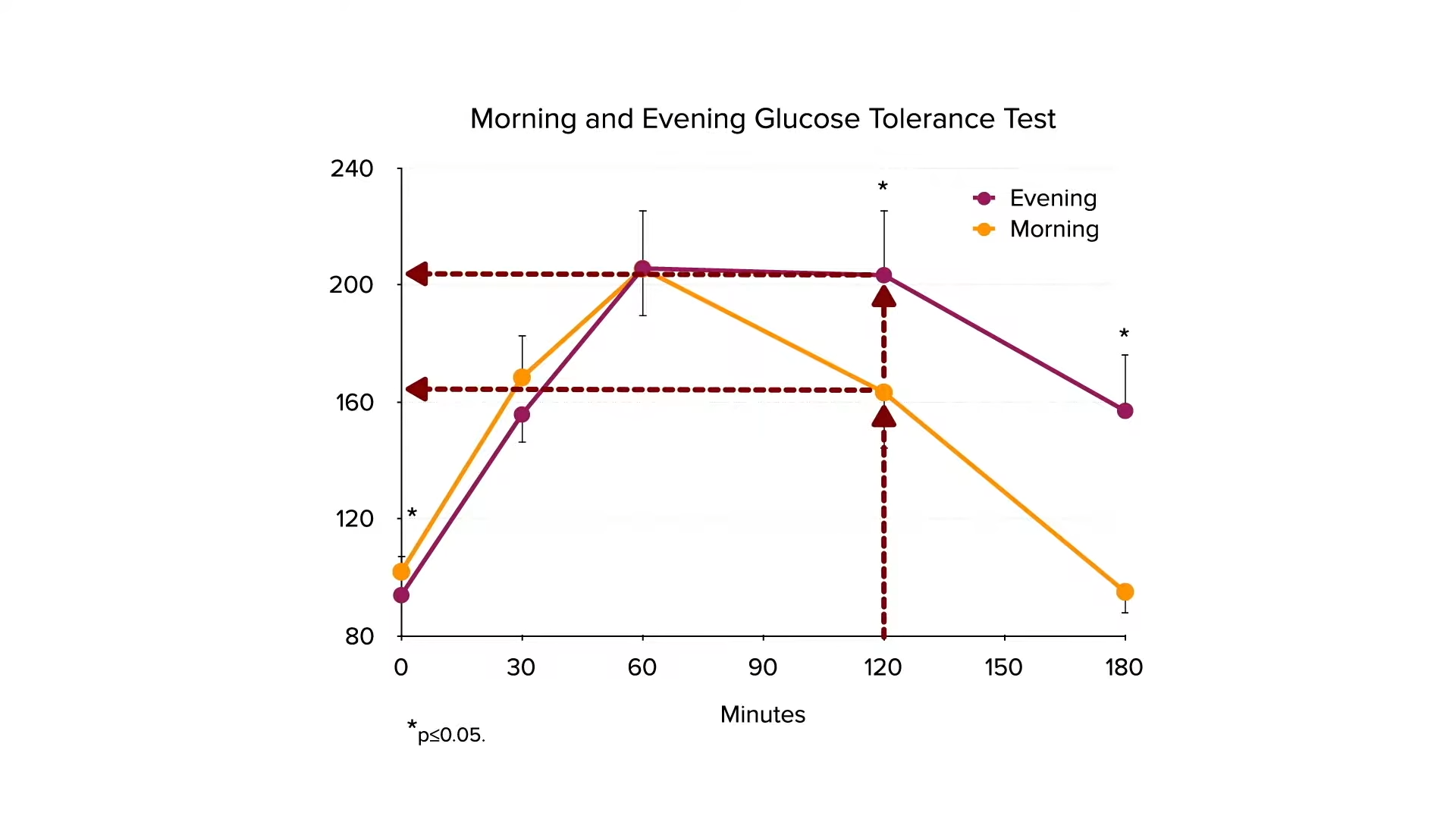
Choosing lower glycemic foods may help promote weight loss, but timing is critical. Due to this circadian pattern in glucose tolerance, a low-glycemic food at night can cause a higher blood sugar spike than a high-glycemic food eaten in the morning, as you can see below and at 2:05 in my video.
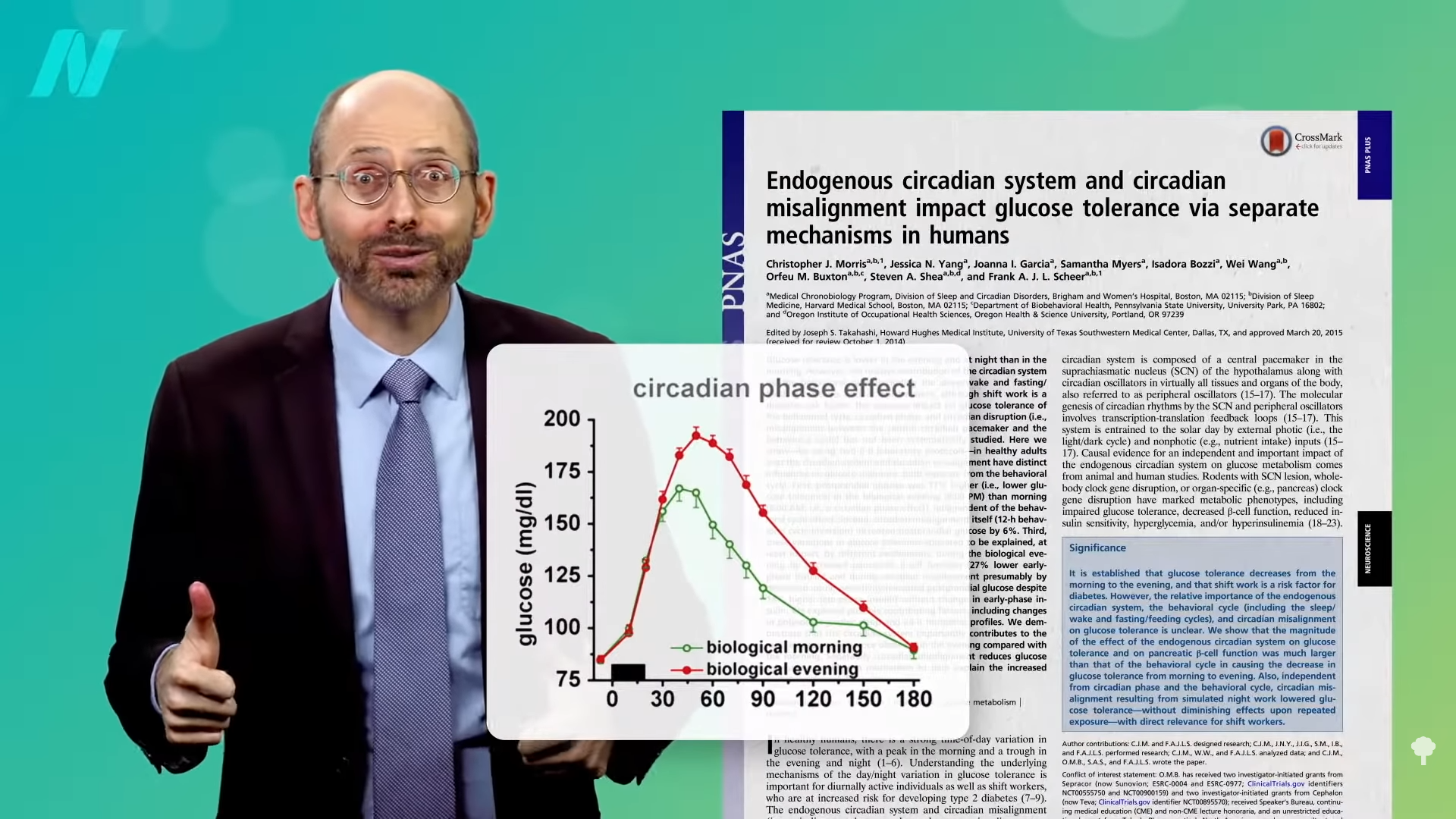
We’re so metabolically crippled at night that researchers found that eating a bowl of All Bran cereal at 8:00 pm caused as high a blood sugar spike as eating Rice Krispies at 8:00 am, as you can see in the graph below and at 2:23 in my video.

High glycemic foods at night would seem to represent the worst of both worlds. So, if you’re going to eat refined grains and sugary junk, it might be less detrimental in the morning, as you can see in the graph below and at 2:32 in my video.
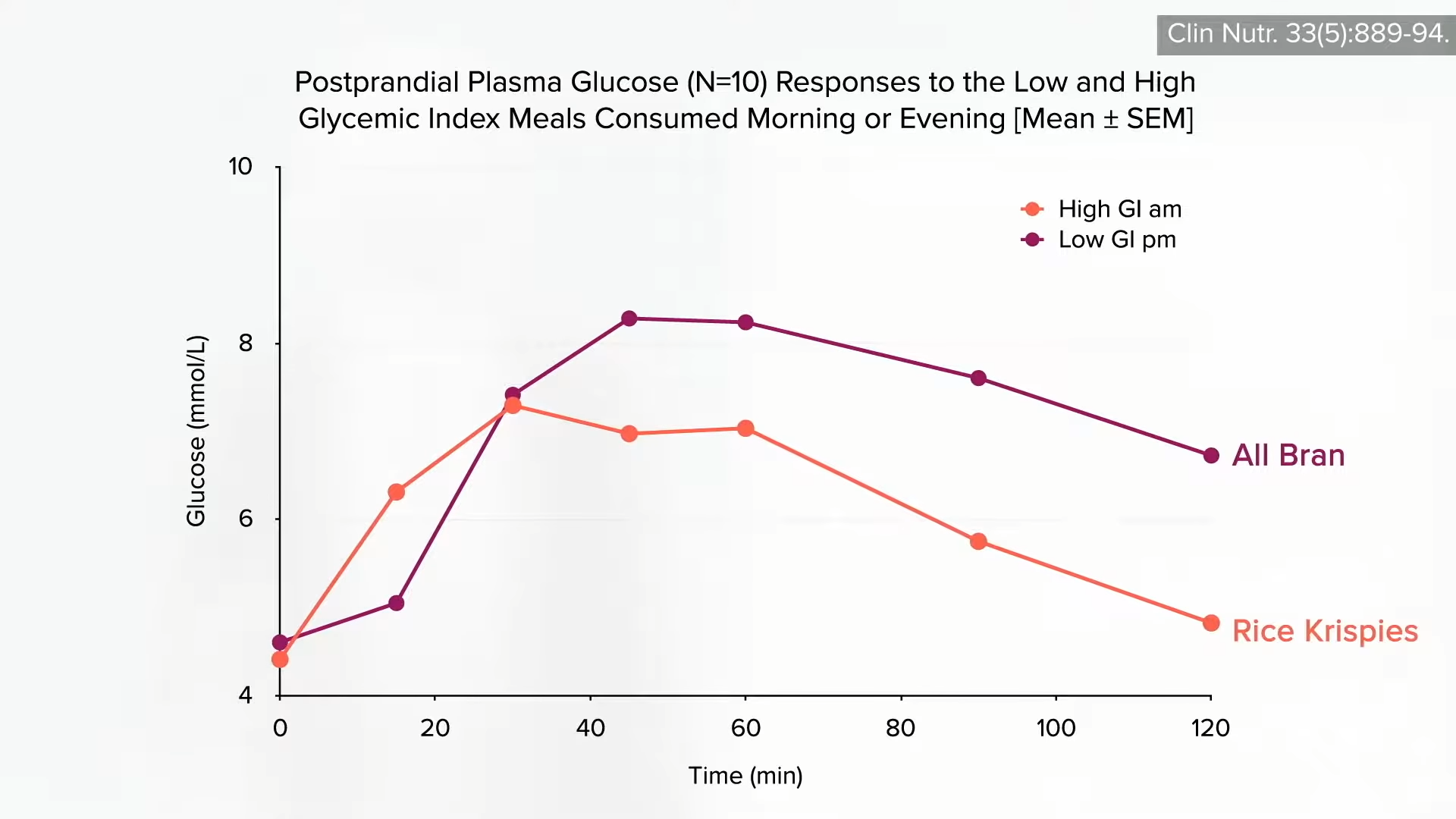
The drop in glucose tolerance over the day could therefore help explain the weight-loss benefits of frontloading calories towards the beginning of the day. Even just taking lunch earlier versus later may make a difference, as you can see in the graph below and at 2:48 in my video.

People randomized to eat a large lunch at 4:30 pm suffered a 46 percent greater blood sugar response compared to an identical meal eaten just a few hours earlier at 1:00 pm. A meal at 7:00 am can cause 37 percent lower blood sugars than an identical meal at 1:00 pm, as you can see below, and at 3:04 in my video.
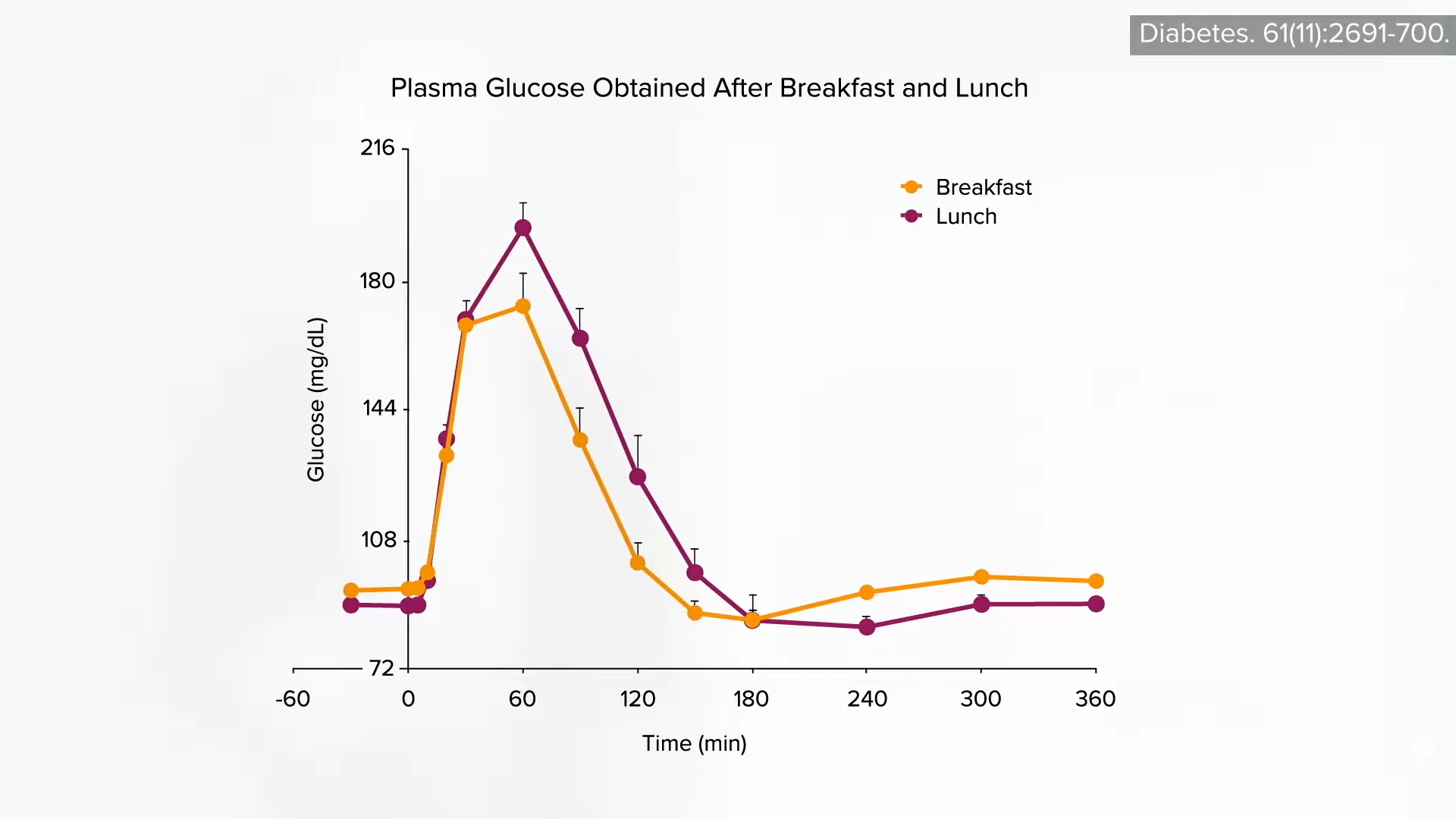
Now, there doesn’t seem to be any difference between a meal at 8:00 pm and the same meal at midnight; they both seem to be too late, as you can see below, and at 3:15 in my video.

But, eating that late, at midnight or even 11:00 pm, can so disrupt your circadian rhythm that it can mess up your metabolism the next morning, resulting in significantly higher blood sugars after breakfast, compared to eating the same dinner at 6:00 pm the evening before, as shown in the graph below and at 3:32 in my video.

So, these revelations of chronobiology bring the breakfast debate full circle. Skipping breakfast not only generally fails to cause weight loss, but it worsens overall daily blood sugar control in both diabetic individuals and people who are not diabetic, as you can see in the graph below and at 3:44 in my video.
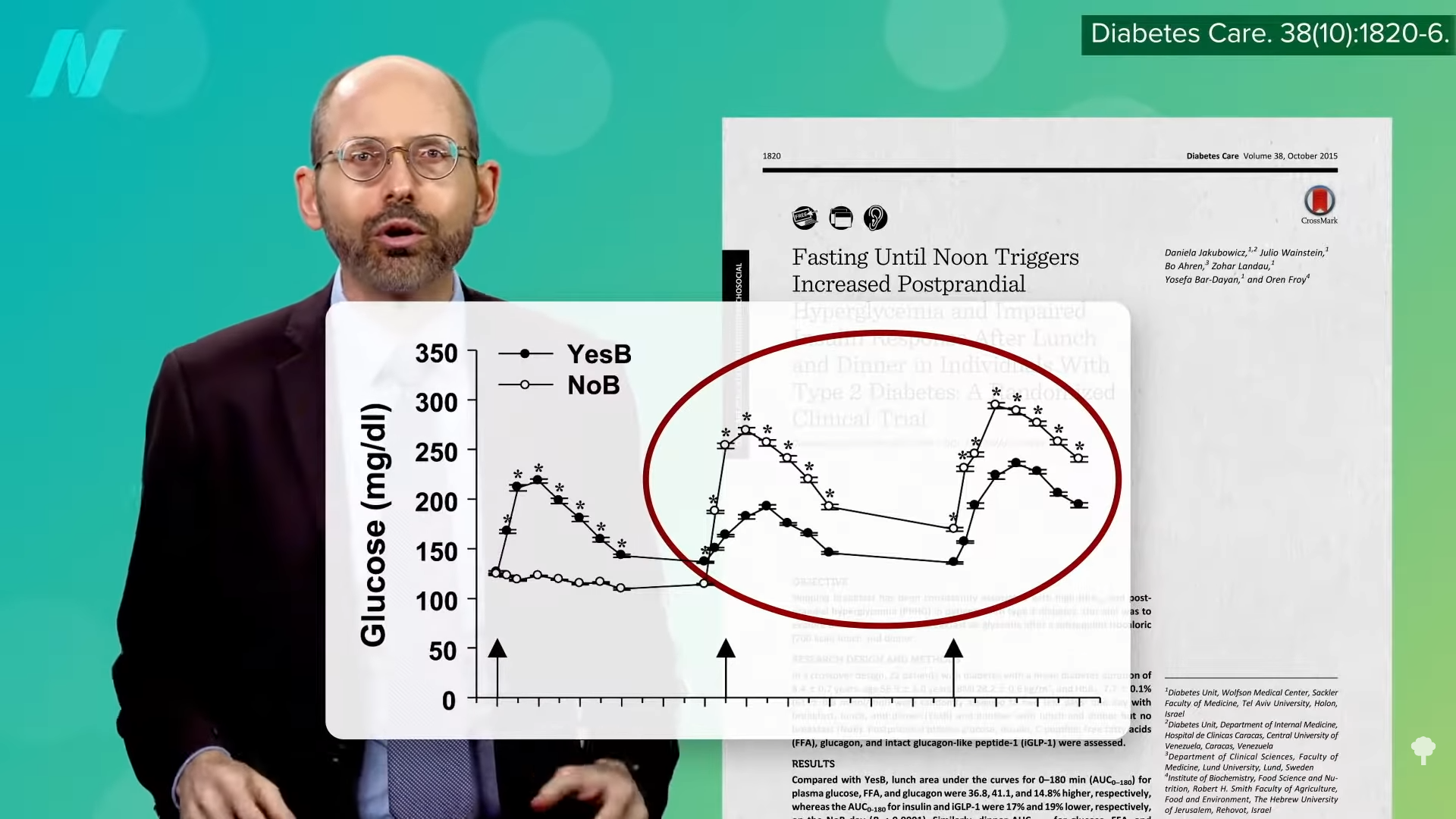
Below and at 3:53, you can see a graph showing how the breakfast skippers have higher blood sugars even while they’re sleeping 20 hours later. This may help explain why those who skip breakfast appear to be at higher risk of developing type 2 diabetes in the first place.

Breakfast skippers also tend to have higher rates of heart disease, as well as having higher rates of atherosclerosis, in general. Is this just because “skipping breakfast tends to cluster with other unhealthy choices, including smoking” and sicklier eating habits overall? The link between skipping breakfast and heart disease—even premature death in general—seems to survive attempts to control for these confounding factors, but you don’t really know until you put it to the test.
Does skipping breakfast lead to higher cholesterol, for example? Yes, researchers found a significant rise in LDL (bad) cholesterol in study participants randomized to skip breakfast; they were about 10 points higher within just two weeks, as you can see below and at 4:45 in my video.
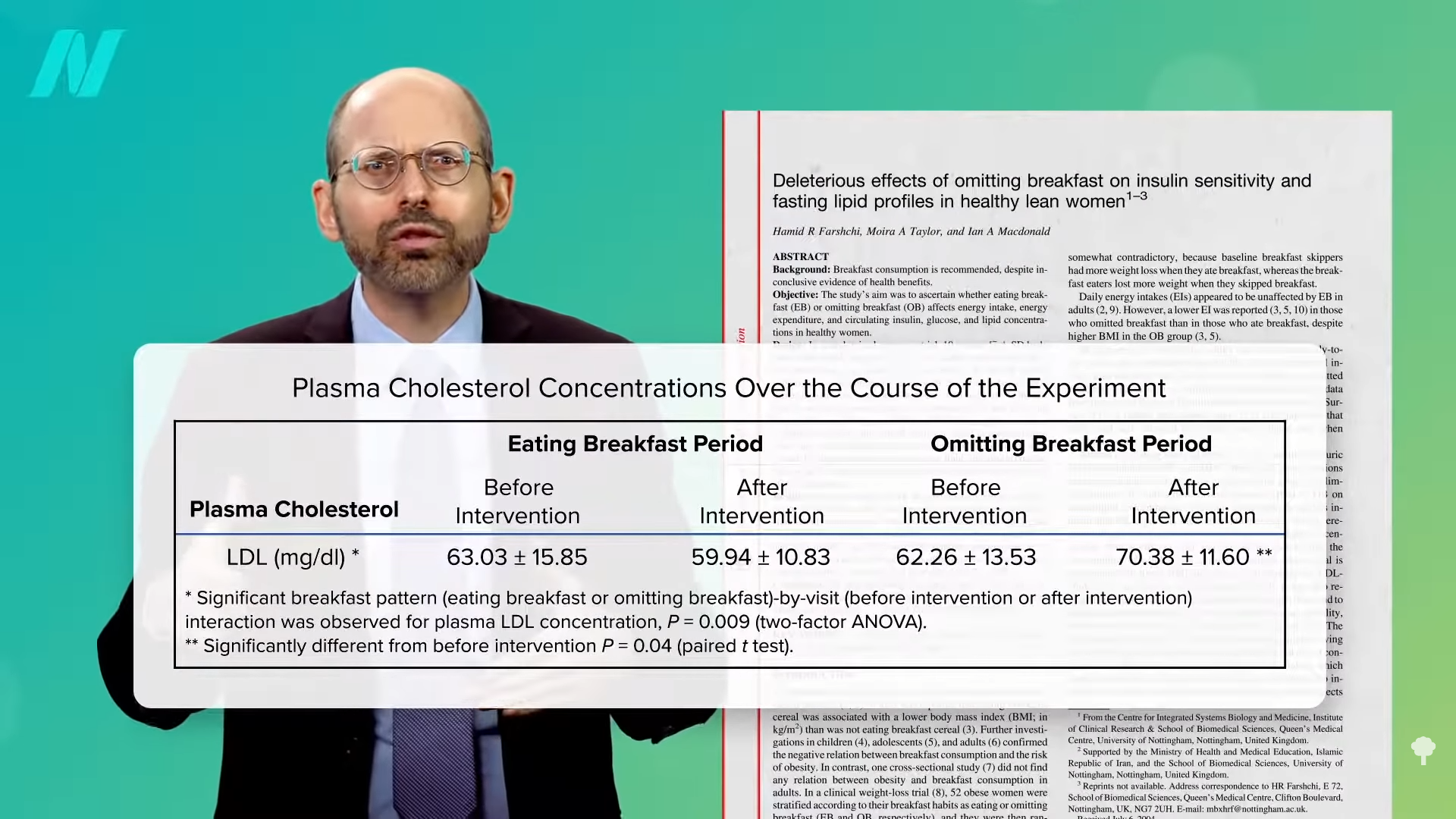
The Israeli study with the caloric distribution of 700 calories for breakfast, 500 for lunch, and 200 for dinner that I’ve discussed previously found that the triglycerides of the king-prince-pauper group (those eating more at breakfast versus dinner) got significantly better—a 60-point drop—while those of the pauper-prince-king group got significantly worse (a 26-point rise). So, consuming more calories in the morning relative to the evening may actually have a triple benefit: more weight loss, better blood sugar control, and lower heart disease risk, as you can see below and at 5:18 in my video.
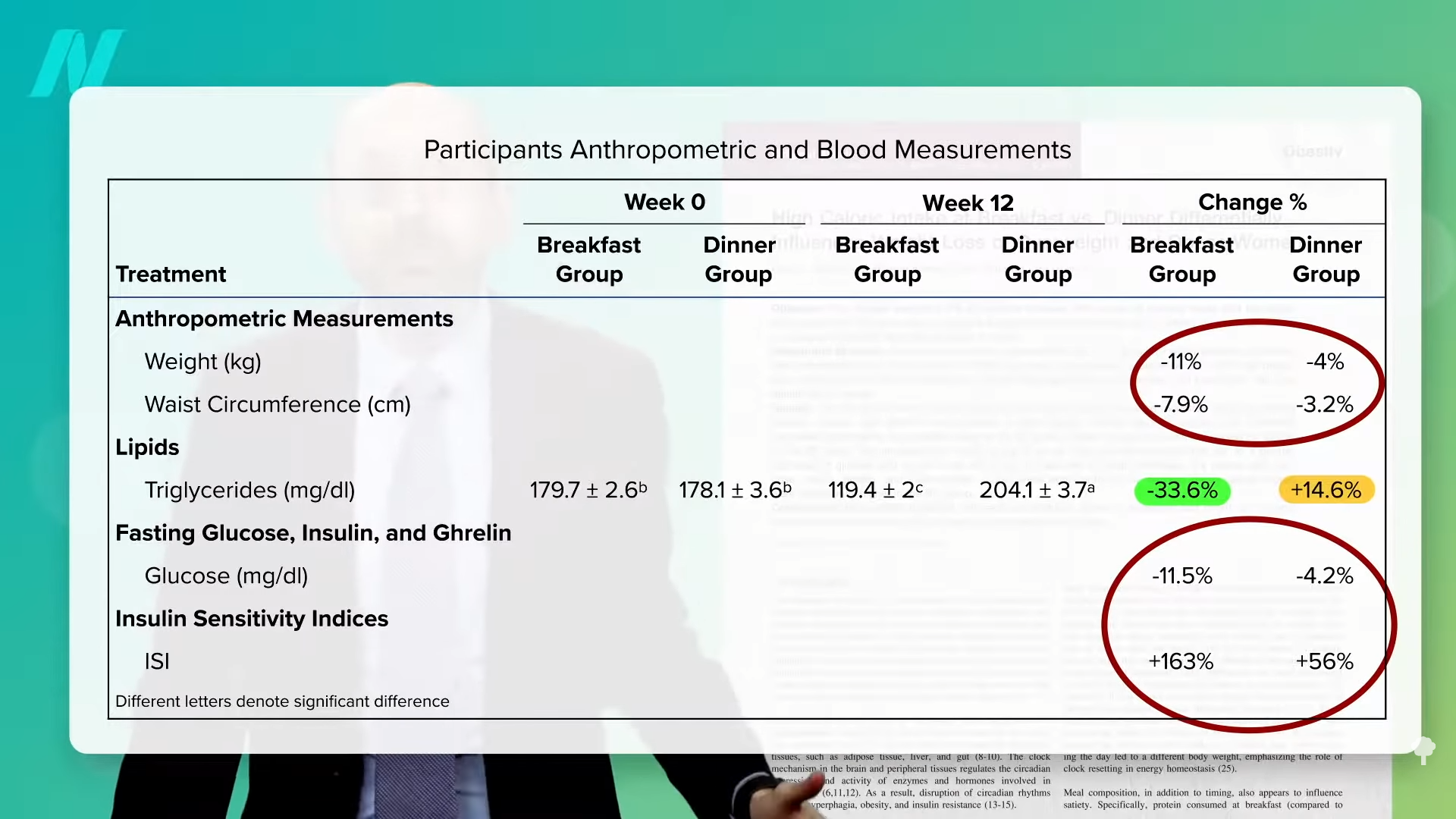
If you’re going to skip any meal, whether you’re practicing intermittent fasting or time-restricted feeding (where you try to fit all of your food intake into a certain time window each day), it may be safer and more effective to skip dinner rather than breakfast.
I’m back with the next installment of the chronobiology series! I previously explored eating breakfast for weight loss (Is Breakfast the Most Important Meal for Weight Loss? and Is Skipping Breakfast Better for Weight Loss?), introduced chronobiology (How Circadian Rhythms Can Control Your Health and Weight), and looked at the science on eating more in the mornings than the evenings (Eat More Calories in the Morning to Lose Weight, Breakfast Like a King, Lunch Like a Prince, Dinner Like a Pauper, and Eat More Calories in the Morning Than the Evening).
Next, you’ll see How to Sync Your Central Circadian Clock to Your Peripheral Clocks.
The series will wrap up in the next couple of weeks. See videos and blogs in related posts below.
Note: The Israeli 700/500/200 study that I mentioned is detailed in the Breakfast Like a King, Lunch Like a Prince, Dinner Like a Pauper video if you want to know more. Also, check the corresponding blog in related posts.
